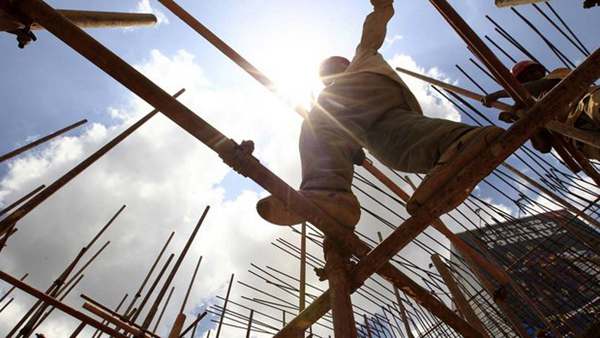

 |
| (Photo/File) |
"Good trend," "strong focus" and "huge potential" are three terms mentioned over and over again by experts at home and abroad to describe China’s economy during the 2016 China Development Forum, held in Beijing on Sunday.
If the Chinese economy is compared to a giant airliner in the sky, its transitional pains are like airflow, which may cause turbulence but does not change the direction of the plane.
The latest data shows that in first two months of this year, total retail sales of consumer goods grew 10.2 percent. During the same period, national online retail sales grew 25.4 percent and food and beverage revenue increased by 11.3 percent.
Over the past five years, China has had an average annual economic growth of 7.8 percent. Compared to Japan and South Korea, China's slowdown is much milder than those of the other two countries, said Wang Yiming, Deputy Director of the Development Research Center of the State Council of the PRC.
In Wang’s view, China's economic transformation was launched in the past five years, which is evidenced in the contributions that growing consumption has made to economic growth, the service industry, urbanization and other indicators.
Compared to many other countries, China's current economic growth rate is still high, said Eric Maskin, Nobel laureate and professor at Harvard University. Maskin said that in the next five to 10 years, China's economy will emulate European and other developed countries’ economies.
Finance Minister Lou Jiwei has shrugged off the pessimistic outlook on China's sovereign credit rating by U.S. ratings agency Moody's Investors Service earlier this month.
There have been no major negative responses from either the international or domestic market to China’s shifting economic landscape. Not only did the offshore RMB exchange rate not fall, it actually rose, Lou told the China Development Forum in Beijing on Sunday.
Not all international organizations think the way Moody's does. Just before the forum began, Christine Lagarde, Managing Director of the IMF, said that China’s growth transition and reforms are a necessary process that, "in the long run will lead to more sustainable growth and benefit both China and the world."
Sharing the view that China's economy will not experience a "hard landing," Blackstone Group CEO Stephen Schwarzman said that China's 6.9 percent economic growth rate last year is still a very good rate in the context of the global economic environment. Schwarzman expects China’s service industry to grow significantly in proportion to the country’s economy in the next five to 10 years. Meanwhile, he believes the Chinese economy will be more dependent on the domestic market.
 Thai most beautiful transgender Nong Poy release new photos
Thai most beautiful transgender Nong Poy release new photos Now and then photos of Shanghai Jiaotong University
Now and then photos of Shanghai Jiaotong University Is this what air travel will look like in 2050?
Is this what air travel will look like in 2050? Aerial view of watermelon terraces in S China's Baise
Aerial view of watermelon terraces in S China's Baise Traditional wedding of a post-80s Tibetan couple
Traditional wedding of a post-80s Tibetan couple Models in cheongsams present classical oriental beauty
Models in cheongsams present classical oriental beauty Second commissioned C28A corvette made by China enters Algerian Navy
Second commissioned C28A corvette made by China enters Algerian Navy Intoxicating Wuyuan in spring
Intoxicating Wuyuan in spring Gold and silver wares of Qing Dynasty exhibited in Shenyang Imperial Palace
Gold and silver wares of Qing Dynasty exhibited in Shenyang Imperial Palace Top 20 hottest women in the world in 2014
Top 20 hottest women in the world in 2014 Top 10 hardest languages to learn
Top 10 hardest languages to learn 10 Chinese female stars with most beautiful faces
10 Chinese female stars with most beautiful faces China’s Top 10 Unique Bridges, Highways and Roads
China’s Top 10 Unique Bridges, Highways and Roads Challenges seen in attracting foreign capital
Challenges seen in attracting foreign capital  Suspected matricide case highlights mental health problems in China’s elite colleges
Suspected matricide case highlights mental health problems in China’s elite colleges  Peering into North Korea from China’s border
Peering into North Korea from China’s border  Cross-Straits ‘diplomatic truce’ still holds
Cross-Straits ‘diplomatic truce’ still holds Day|Week